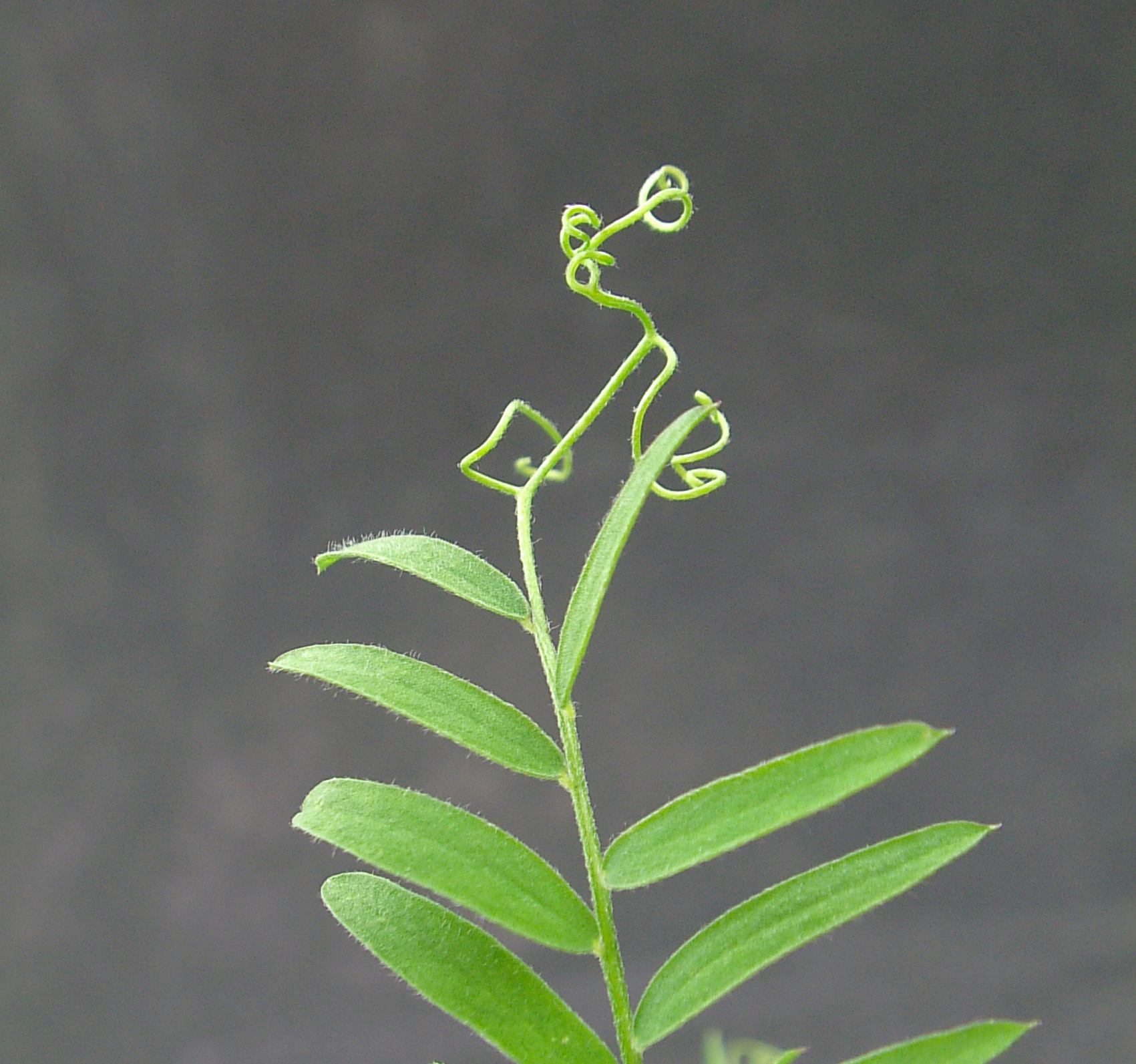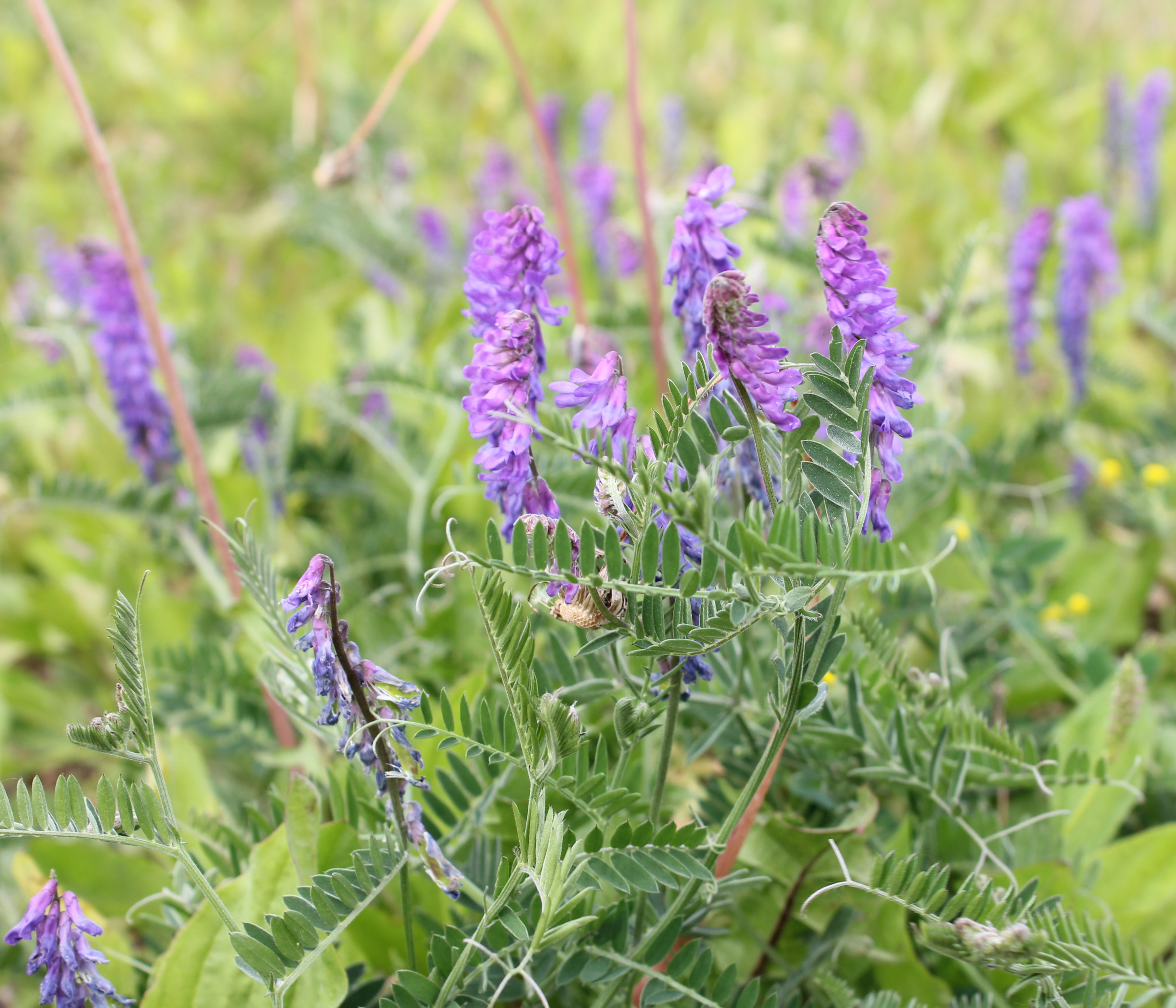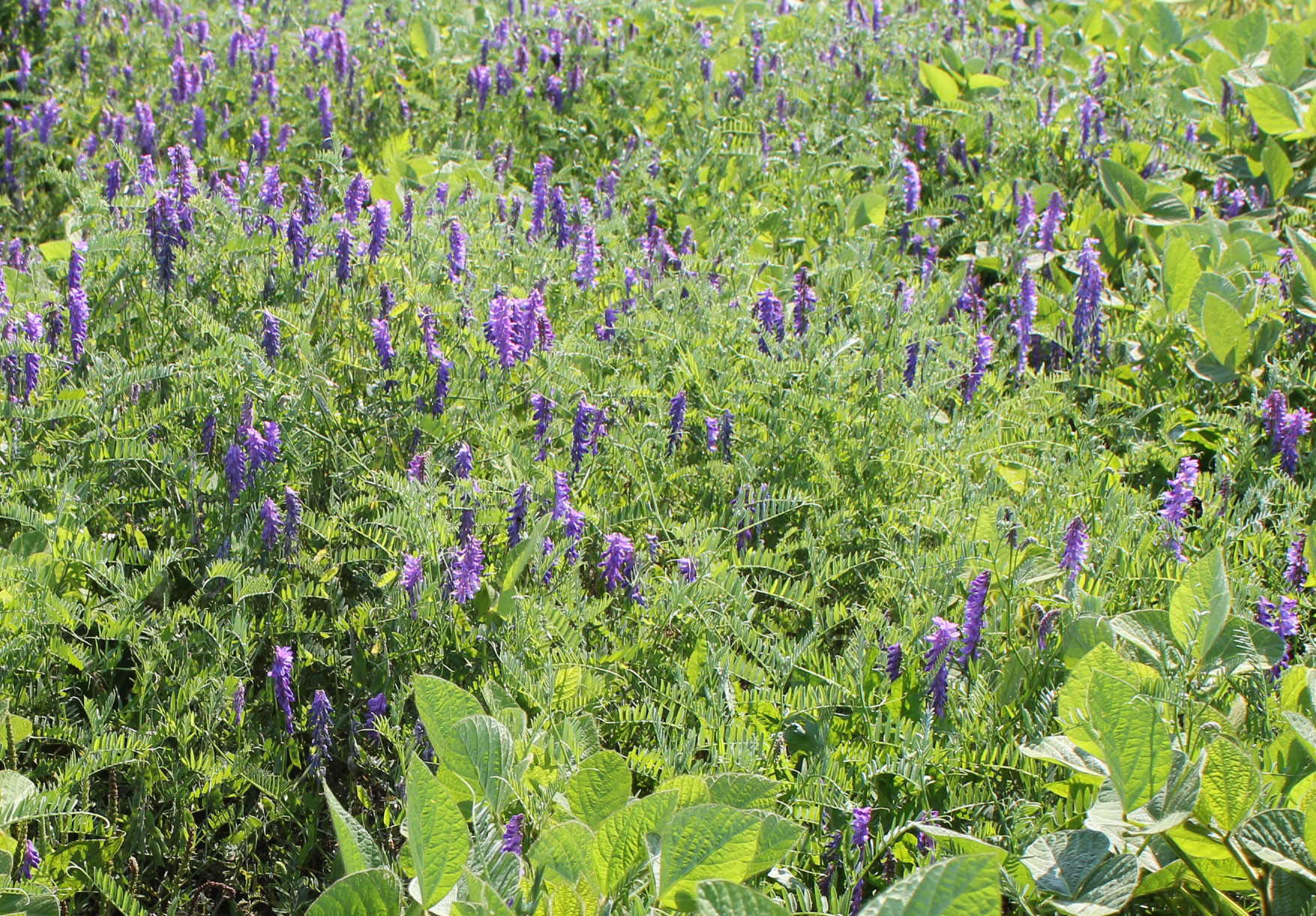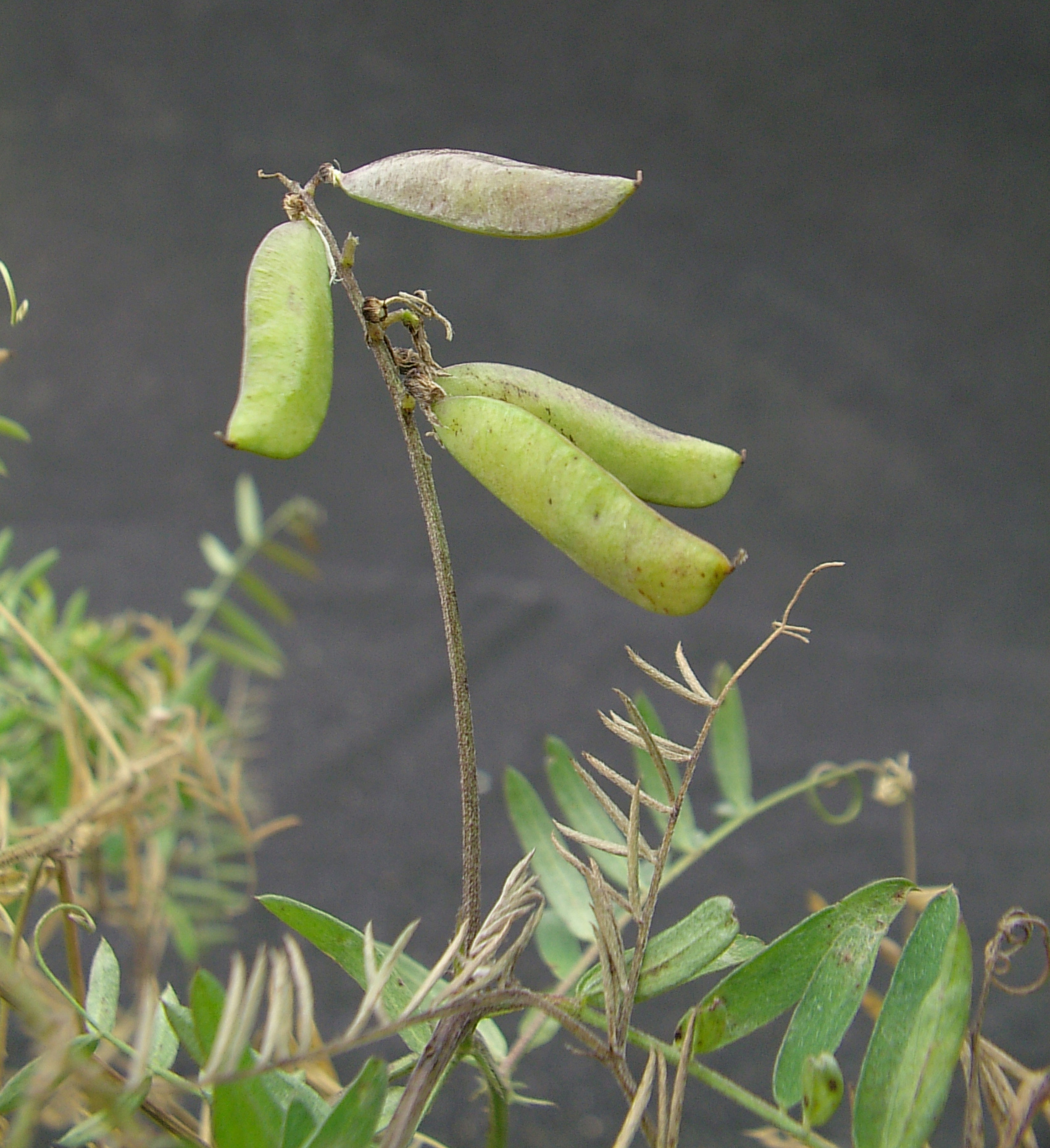Tufted Vetch
- Legume (Fabaceae family):
- Vicia cracca L.
- EPPO code:
- VICCR
- Other names:
- Bird vetch
Species information
- Lifecycle:
- Perennial.
- Propagation:
- Reproduces by seed and by spreading underground roots.
- Emergence:
- New shoots emerge from the underground roots throughout the season starting as early as late April, but emerge most frequently in late May to early June.
- Habitat:
- Tufted vetch prefers environments with little soil disturbance; therefore, is most often found in no-till or minimum-till cropping systems , but also in pastures, fence lines and orchards.
- Competitiveness:
- Tufted vetch has caused over 30% yield loss in soybeans when it is not controlled prior to planting. Its impact on soybean yield is reduced significantly if this plant emerges well after soybean emergence. When allowed to grow in cereals, it negatively affects harvesting efficiency.
Identification clues
Young plant
- First leaves:
- First leaves appear in alternate orientation of composite leaves, which are made up of a few pairs of opposite leaflets (typically 1–6).
- Mature leaves:
- Mature leaves appear the same as first leaves, but with more pairs of opposite leaflets. Leaves also have a tendril at the end, which helps the plant wrap around other plants and objects.
Mature plant
- Stems:
- Tufted vetch stems are creeping and much branched. As they spread, they wrap around other plants and objects.
- Flowers:
- Tufted vetch produces several violet to purplish flowers, which are crowded to one side of a long bare stalk. The flowers appear from June to late autumn.
- Seeds:
- Round and dull black in colour, tufted vetch seeds are enclosed in a seedpod reminiscent of pea.
- Roots:
- Spreading horizontal roots.
Often mistaken for
I know it's not Hairy vetch because tufted vetch is a perennial and has smaller seedpods than hairy vetch. The differences are not easy to spot, though. The biggest clue is that hairy vetch is a cover crop that is grown on purpose, so it should be more uniform than the patchy tufted vetch.





Updated: January 13, 2023
Published: January 13, 2023